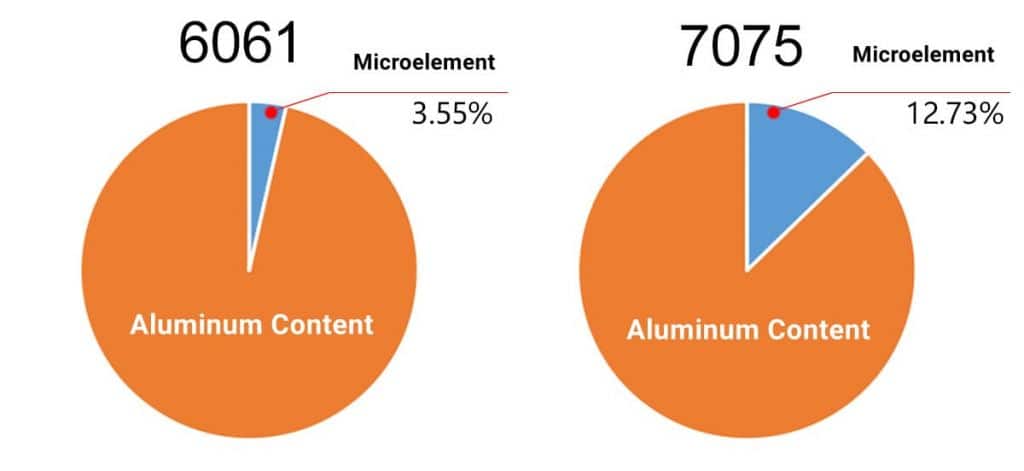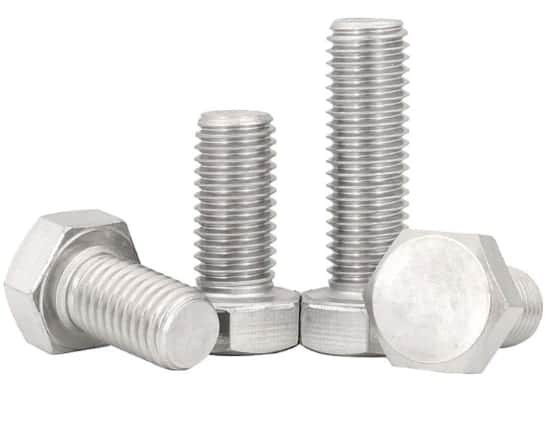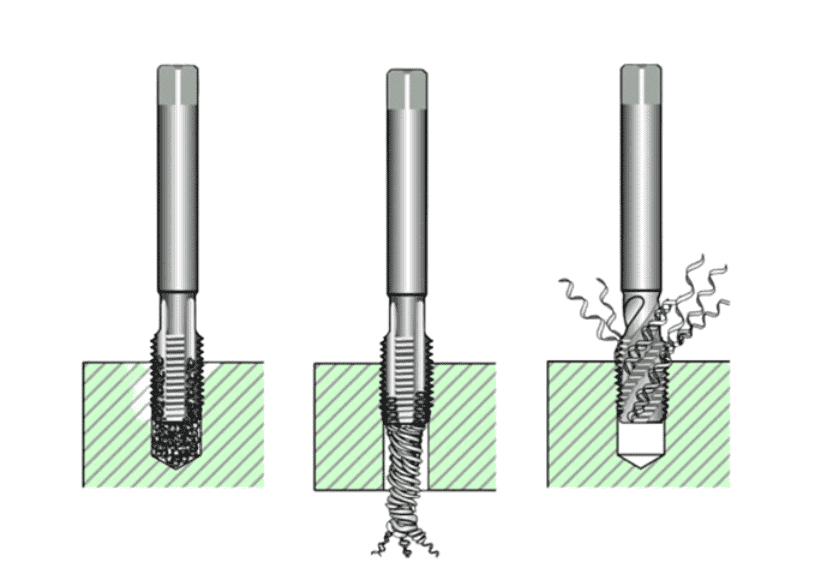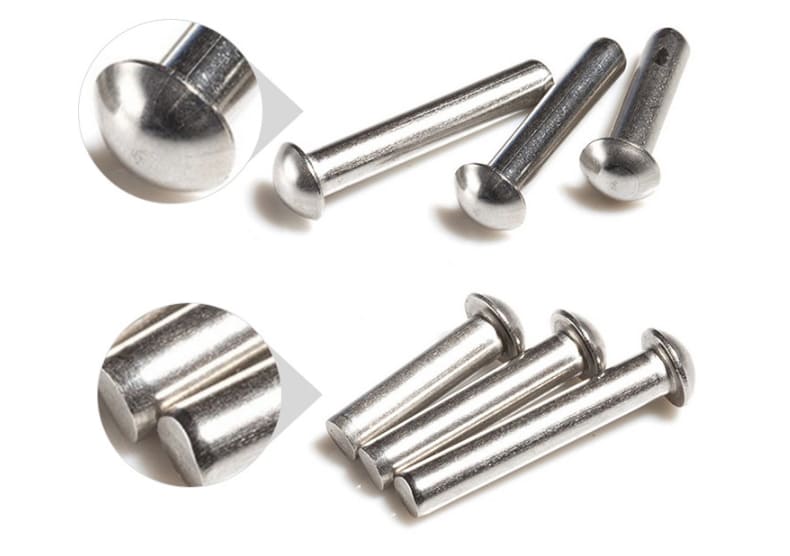When it comes to structural metal fabrication, perhaps there is only one metal that gets as much attention as steel, and that is aluminum.
The two most popular aluminum for structural applications is 6061 and 7075. While aluminum 6061 and aluminum 7075 are similar in some ways, there are also significant differences.
Today we will talk about the difference between 6061 and 7075 aluminum alloys. To help you make the best choice for your project, you may want to consult experts who provide design and engineering services to optimize material selection for your specific needs.
6061 Aluminum
6061 aluminum alloy is a precipitation-hardening aluminum alloy containing magnesium and silicon as its main alloying elements.
Typical properties of 6061 aluminum alloy include medium to high strength, shell toughness, good surface finish during processing, excellent atmospheric corrosion resistance, good seawater corrosion resistance, easy anodization, good weldability, traceability, and good workability.
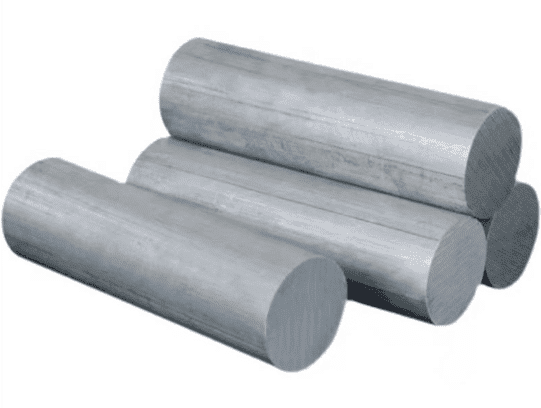
6061 aluminum alloy is the most widely used one in 5-axis precision machining in CNC machining workshops. 6061 aluminum alloy is widely used in various industrial structural parts that require certain strength and high corrosion resistance.
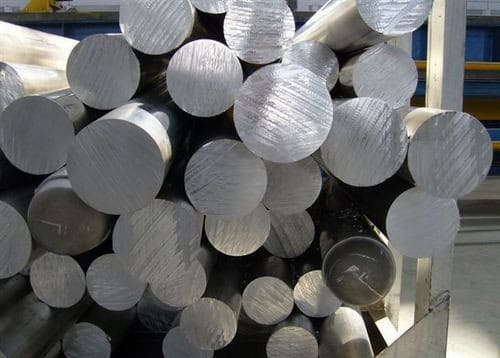
7075 Aluminum
7075 aluminum alloy is an aluminum alloy with zinc as the main alloying element. 7075 aluminum is the lightest and strongest aluminum, and it’s super expensive!
7075 aluminum alloy is as strong as steel and has good fatigue strength and average machinability.
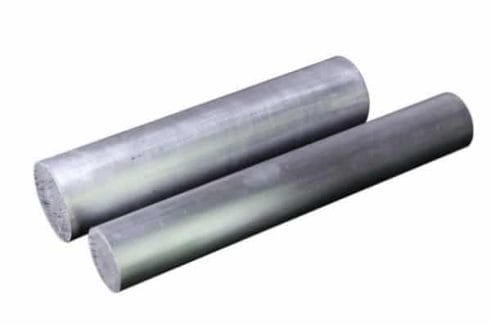
7075 aluminum plate is a cold-treated forged alloy with high strength, far superior to mild steel. Aluminum 7075 is also a 7000-series aluminum material.
The composition is the same as that of aluminum 7005, but the content of 7075 aluminum is much higher.
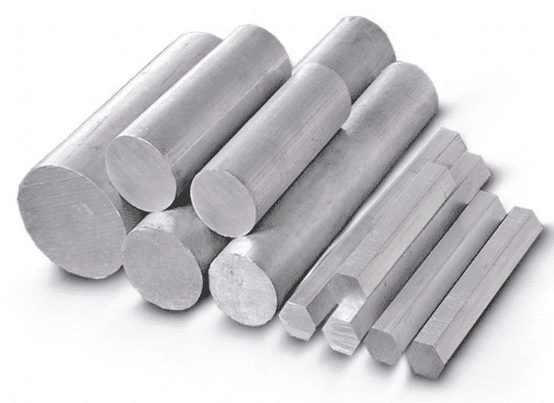
The hardness of 7075 aluminum is much higher than that of aluminum 6061 and aluminum 7005, which exceeds the hardness of steel.
However, due to the high alloy composition of 7075 aluminum, the hardness is extremely high. Therefore, welding and pressing are very difficult.
The price of 7075 aluminum is also much higher than 6061 aluminum and 7005 aluminum.
Recommended: CNC Machining For Aluminum Materials
What Are the Differences Between 6061 and 7075 Aluminum Alloys
1. Different Components
The aluminum 7075 series mainly uses zinc as the main alloy, and the composition ratio reaches 6%. The aluminum 6061 series mainly use magnesium and silicon as the main alloy, and the total composition ratio is low.
7075 aluminum contains a high proportion of other metals, so the welding process is more difficult.
However, 6061 aluminum contains a low proportion of other metals, which can be processed to increase its strength and reduce its wind resistance.
Chemical Composition, W%. Aluminum Content, Allowance

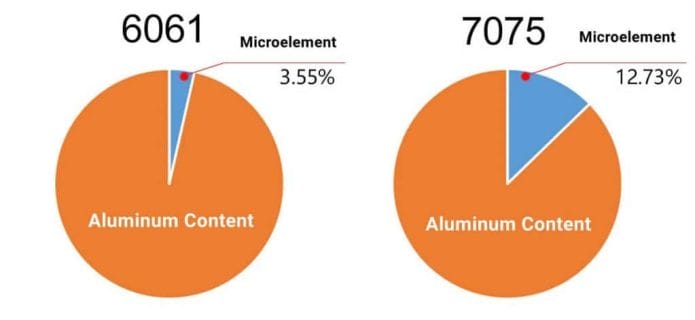
Aluminum 6061 and Aluminum 7075 Properties Comparison Chart
| Properties | Aluminum 6061-T6 | Aluminum 7075-T6 |
| Density (g/cm3) | 2.7 | 3 |
| Melting Onset (“C) | 580 | 480 |
| Melting Completion (“C) | 650 | 640 |
| Thermal Conductivity (W/m-K) | 170 | 130 |
| Ultimate Tensile Strength (MPa) | 310 | 560 |
| Yield Tensile Strength (MPa) | 270 | 480 |
| Brinell Hardness | 93 | 150 |
| Elongation at Break (%) | 10 | 7.9 |
| Fatigue Strength (MPa) | 96 | 160 |
| Shear Strength (MPa) | 210 | 330 |
Aluminum 6061 and Aluminum 7075 Composition Comparison Chart – PDF.
2. Different Mechanical Properties
Both 6061 aluminum and 7075 aluminum can be heat treated, so their mechanical properties can only be accurately compared with the same type of heat treatment.
When looking at the two alloys in the T6 heat-treated condition, some clear differences can be seen.
The first is that the tensile strength of aluminum 7075-T6 is almost twice that of aluminum 6061-T6.
The second is that the shear strength of aluminum 7075-T6 is about 1.5 times that of 6061-T6.
7075 aluminum contains a high proportion of other metals, so welding and processing are more difficult, and its proportion is higher, so it is generally not used as a frame material.
6061 aluminum has a low proportion of other metals, so it can be shaped and treated to increase its strength and reduce its wind resistance.
It can even be pumped three times to reduce its weight. On the whole, 6061 aluminum is a better material for aluminum machining.
3. Different Intensity
In terms of strength, aluminum 7075 is stronger, no less than steel, but aluminum 7075 is only a little stronger than aluminum 6061.
4. Different Prices
7075 aluminum is the lightest and strongest aluminum material, and it is also super expensive, while 6061 aluminum is the most common aluminum material, light, strong, and economical.
5. Different Machining Performance
- In terms of machinability, both can be milled well on CNC machines.
- 6061 aluminum can be welded, but 7075 aluminum is difficult to weld.
- 6061 aluminum can be easily oxidized and colored, and the oxidation effect of 7075 aluminum is unstable.
- When 7075 aluminum and 6065 aluminum are untreated, the corrosion resistance of 6061 aluminum is better.
- 6061t6 and 7075t6 materials have higher hardness and cannot be bent.
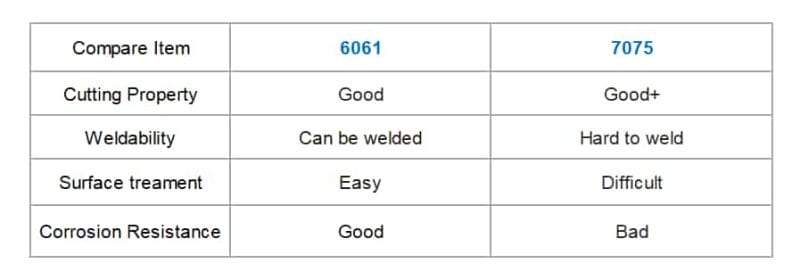
6. Difference in Use
7075 aluminum is widely used in aviation manufacturing and has relatively high strength; 6061 aluminum is mostly used in automobiles, ships, precision parts, etc., with the advantages of corrosion resistance, moderate strength, and good toughness.
Because of the price, 6061 aluminum can be used in all kinds of places where aluminum alloy materials are not required, while aluminum 7075 and 7005 are usually used in aerospace, with high hardness requirements and low-density requirements for commercial purposes. Therefore, aluminum 7075 is usually also a commercial aluminum alloy.
7075 aluminum is used more in molds and industrial tools than 6061 aluminum.
Because 6061 aluminum is easier to form than 7075 aluminum, 6061 aluminum is more commonly used for cans and other items with a round profile shape.
Conclusion
7075 aluminum material is indeed superior to 6061 aluminum material in most cases. But we can’t simply conclude that 7075 aluminum is necessarily better.
Still, you first need to clarify your purpose and budget.
Generally speaking, 6061 aluminum can basically meet the general industrial manufacturing requirements.
And 7075 aluminum is used in demanding occasions, such as aerospace, military supplies, precision equipment, high-end electronic equipment, high-end products, etc.

What is the Difference Between Zinc Alloy and Aluminum Alloy
Different Raw Materials
Zinc alloy is an alloy based on zinc with other elements added. The alloying elements that are often added are low-temperature zinc alloys such as aluminum, brass, magnesium, cadmium, lead, and titanium.
Zinc alloys are produced by the melt method and are used as materials in die casting and stamping. Aluminum alloy is a general term for aluminum-based alloys.
The main alloying elements are copper, silicon, magnesium, zinc, and manganese, and the secondary alloying elements are nickel, iron, titanium, chromium, and lithium.
Different Scope of Application
Zinc alloys can be divided into cast zinc alloys and deformed zinc alloys according to the manufacturing process.
They can be used for die-casting instruments, galvanized anti-corrosion on the surface of electric poles of automobile parts, and the improvement of high-temperature corrosion resistance caused by galvanized treatment of boiler water wall piping.
Aluminum alloy is the most widely used non-ferrous metal structural material in the industry and is widely used in aviation, aerospace, automobile machinery manufacturing, shipbuilding, the chemical industry, etc.
The different temperatures of the molten soup during processing
The zinc alloy is more than 400 degrees; the aluminum alloy is more than 700 degrees.
Different Processing Equipment
Although both are called die-casting machines, they are not universal at all.
YIJIN Hardware is mainly engaged in aluminum machining and the production and manufacture of non-standard precision CNC parts. It has been deeply involved in the industry for many years and has rich experience.
If your company needs CNC machining, CNC lathe processing, and five-axis machining services including aluminum, brass, stainless steel, iron, titanium alloys, plastics, and other products, please contact YIJIN Hardware, and we will provide you with an integrated solution.

 info@yijinsolution.com
info@yijinsolution.com (+86) 188-2253-7569
(+86) 188-2253-7569
